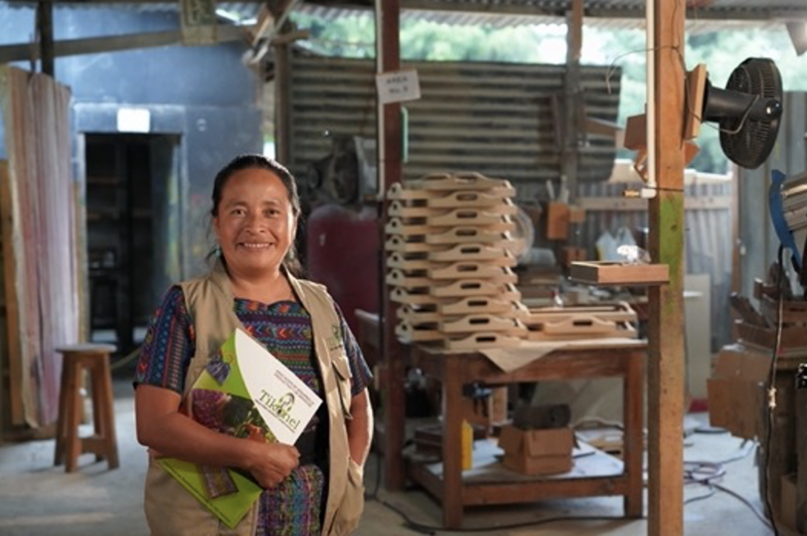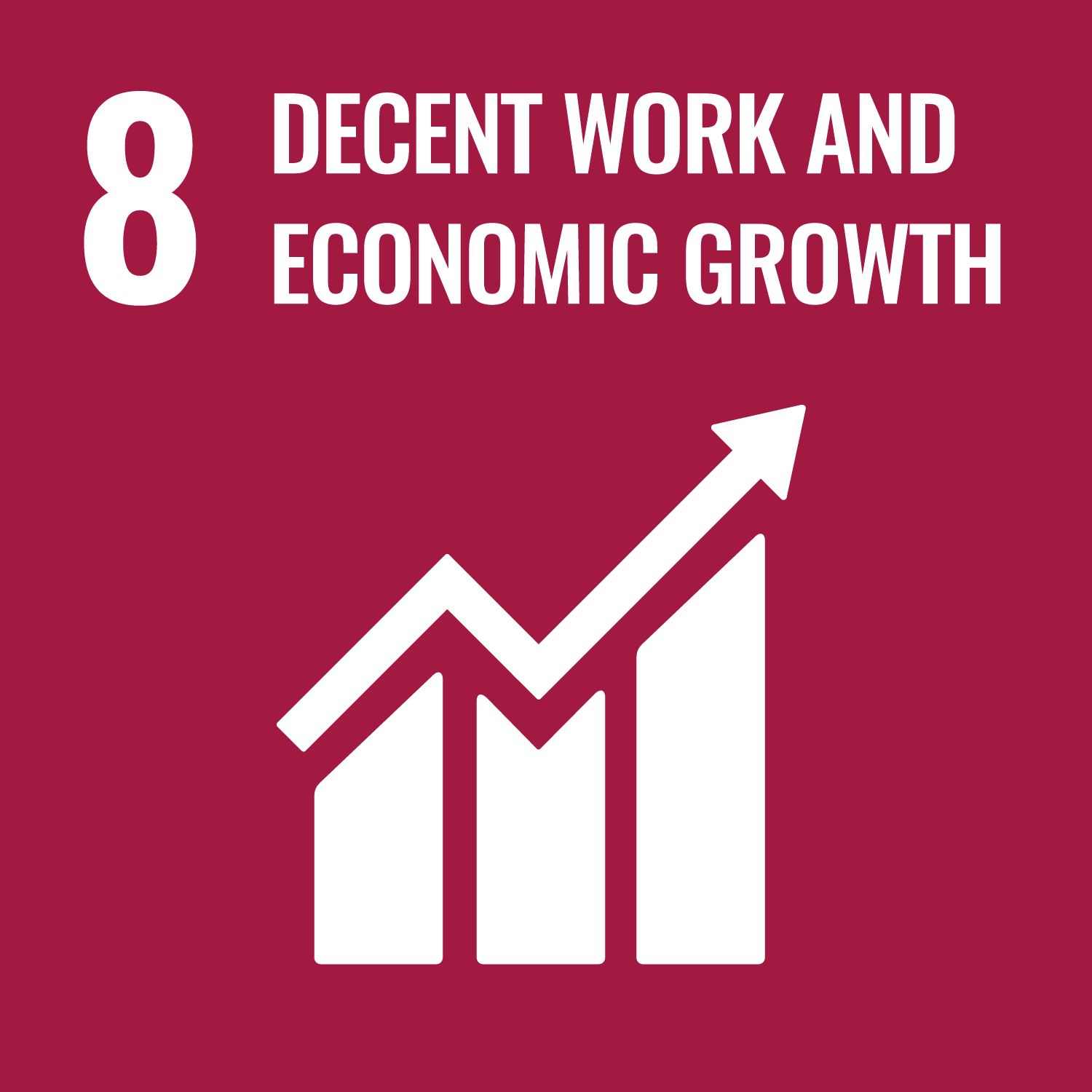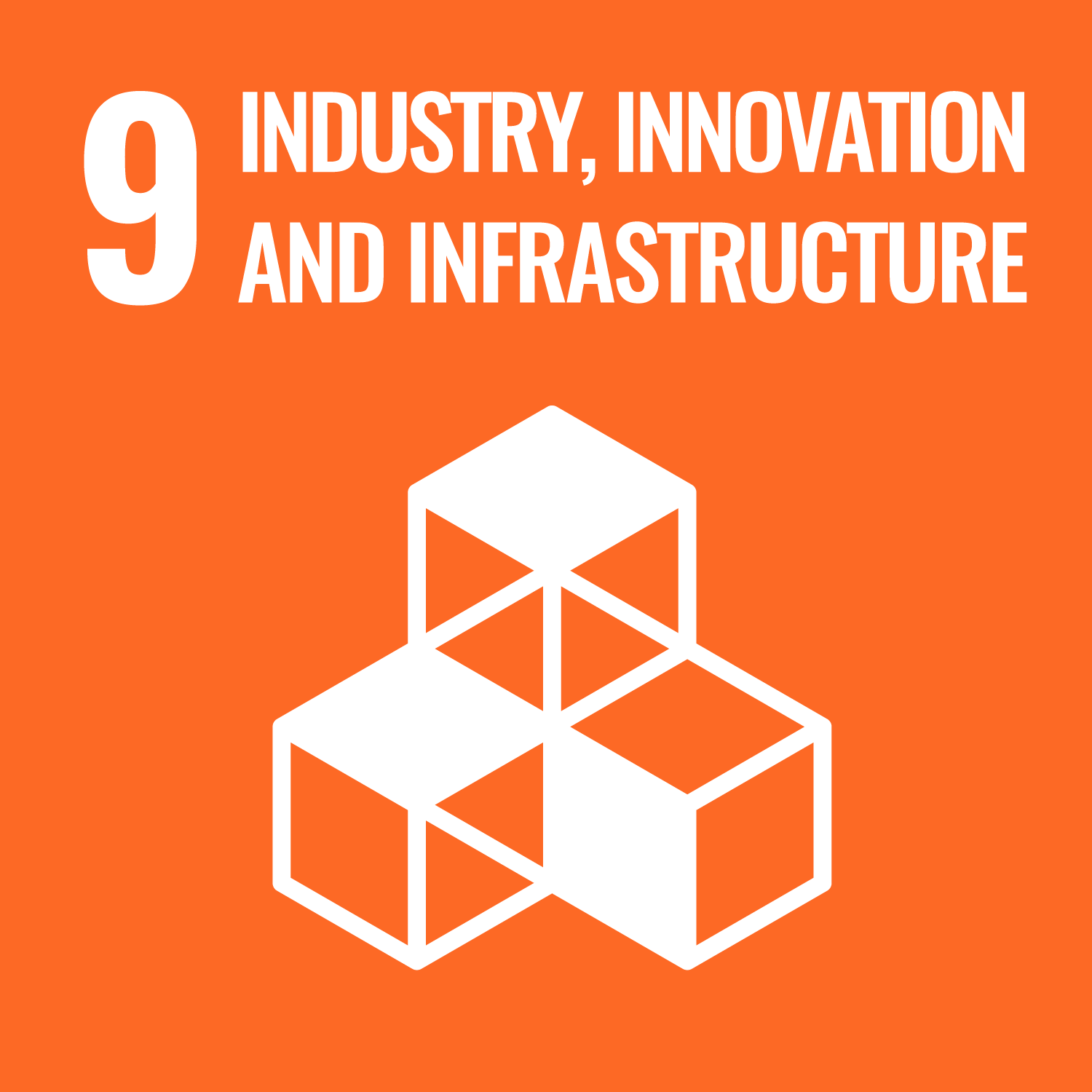Small is beautiful—and powerful—but MSMEs need support
27 June 2023

Margarita Loel, a member of the board of Sacalá, a growing small forest enterprise in Guatemala that benefited from an ITTO project. Photo: R. Carrillo
27 June 2023, Yokohama, Japan: Micro, small and medium-sized enterprises (MSMEs) are essential forest actors in most tropical countries, providing the bulk of employment in the sector and supplying millions of people with forest products, but they need more support to maximize their potential for sustainable development, ITTO Executive Director Sheam Satkuru said today.
Ms Satkuru was speaking on Micro-, Small, and Medium-sized Enterprises Day, a United Nations-designated day to raise awareness of the tremendous contributions of MSMEs to the achievement of the Sustainable Development Goals.
Definitions of MSMEs vary, but generally the term refers to enterprises with fewer than ten (“micro”), 10–49 (“small”) and 50–300 (“medium-sized”) employees. They comprise the backbone of almost all economies, accounting for an estimated 90% of businesses, 60–70% of employment and 50% of gross domestic product globally; they are especially important for the livelihoods of working poor, women, youth, and groups in vulnerable situations.
They are also essential actors in tropical forestry.
“MSMEs are important development agents in most tropical countries, generating more than half—and up to 90% in some countries—of forest-related employment,” said Ms Satkuru. “They are agile and adaptive, which makes them crucial in this era of rapid change.”
But MSMEs also have inherent disadvantages compared with larger enterprises. They find it difficult to obtain finance, have low negotiating and market power, and may lack resource rights and access to new technologies.
“For most MSMEs in the tropical forest sector, staying afloat financially is the main concern because of the many hurdles they face in ensuring profitability,” said Ms Satkuru. “Yet MSMEs do so much heavy lifting, both economically and in terms of forest management.”
ITTO policy work has helped identify mechanisms to help MSMEs increase their financial sustainability.
For example, the ITTO publication, Fiscal and Non-fiscal Incentives for Sustainable Forest Management, by Alain Karsenty, sets out a range of potential measures to increase the profitability of MSMEs and incentivize them to implement sustainable forest management. These include simplifying processes for smallholders to obtain ownership of trees and land; prioritizing the recognition of forest property rights for communities, households and families to support small-scale private forestry; enabling small-scale informal loggers to enter the formal economy; and encouraging supply contracts that allow small-scale wood processors to use industrial sawmill wastes.
Many ITTO projects have also assisted the development of forest-based MSMEs. A project [PD 756/14 Rev.1 (M)] in Guatemala, for example, helped 19 MSMEs to formalize and register with the National Forest Registry and thus become part of the country’s formal economy. These MSMEs applied their newly acquired business management skills to increase the profitability and efficiency of their forest-based enterprises. More broadly, the project strengthened the country’s enabling and regulatory environment to give MSMEs the best chance of success (watch a video about Sacalá, one of the MSMEs involved in the project, here).
“The power of MSMEs to bring about positive change in the forest sector is immense, but it needs to be unleashed,” said Ms Satkuru. “Countries can increase the success of MSMEs through better policies, by enabling and encouraging them to organize to increase their voice, and by developing their capacity through training. ITTO’s project programme is geared towards meeting the needs of MSMEs, and we stand ready to do more.”

